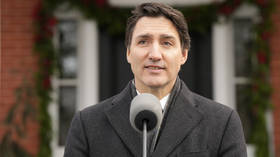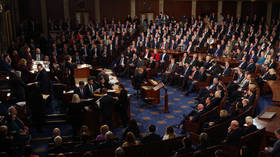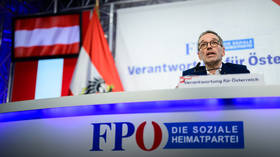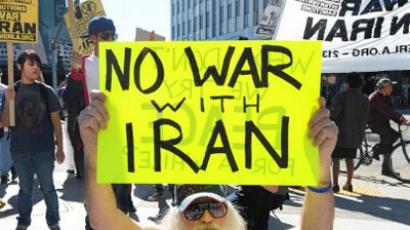Grass stained: Israel slams Nobel Prize-winner over 'anti-nuke' poem
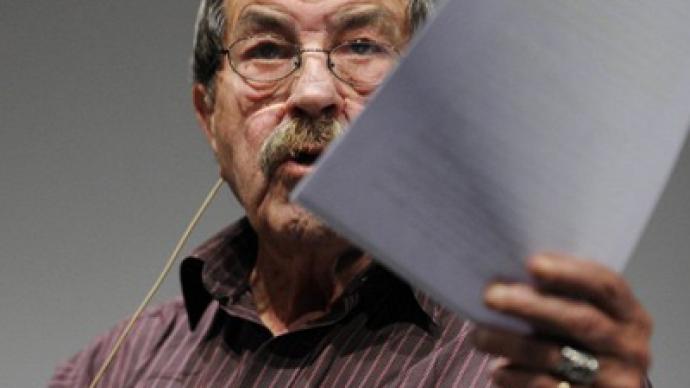
The Israeli government has slammed a poem by prominent German writer and Nobel Prize-winner Gunter Grass criticizing Israel’s stance on nuclear armament. The country labels a comparison Grass made of Israel to Iran “shameful”.
In his lyrical warning What Must be Said, published on Wednesday in the German Sueddeutsche Zeitung daily, Grass claimed it is not Iran, but “Israel's atomic power [which] endangers an already fragile world peace,” as its nuclear program was developed without any supervision. Grass called upon Germany to stop supplying Israel with submarines because “we [Germans] may be providing material for a crime that is foreseeable.”In response, the Israeli Government insisted the country has never threatened any country’s security, as opposed to Iran."The shameful comparison that Gunter Grass made between Israel and Iran, a regime which denies the Holocaust and calls for Israel's destruction, says very little about Israel and a great deal about Mr. Grass," Israel’s Premier Benjamin Netanyahu said in a statement.
The premier’s reaction became more personal as he recalled that Grass was a member of the Waffen SS in 1945. “So for him to cast the one and only Jewish state as the greatest threat… is perhaps not surprising," the Israeli PM pointed out.Meanwhile Efraim Zuroff, the director of Simon Wiesenthal Center in Israel and world famous Nazi hunter, stressed that Grass’s poem “reflects German anti-Semitism, which has spread during the last years,” according to The Jerusalem Post daily.In the writer’s native Germany the poem also caused heated debate by both left- and right-wing politicians, journalists and critics. Germany’s bestselling tabloid Bild called the poem “crazy”, while Die Welt author Henryk Broder called Grass an “educated anti-Semite” who “has always had a tendency toward megalomania.”Hermann Groehe, the general-secretary of Angela Merkel’s CDU said “I’m horrified by the tone and the message of this poem.”“I appreciate Gunter Grass, but I consider this poem irritating and improper taking into account the situation at the Middle East,“ said Andrea Nahles, the general secretary of the Social Democratic Party, which Grass has been openly supporting since the 1960s.However, Iranian press has praised the poem, with Press TV calling it "a deadly lyrical stroke on Israel's lie."Meanwhile Grass seemed to be prepared for harsh criticism over the issues as he speaks about “a likely punishment” in the poem. In an interview to German NRD radio on Thursday he insisted he has no plans to back down."I have noticed that in a democratic country with press freedom that people are expected to toe the line and that there is a refusal to address the content and the questions I raise here," Grass said.Gunter Grass, author of The Tin Drum and more than a dozen novels and plays, is known as a leftist public figure and has been recognized the most influential German intellectual by numerous surveys. Thus his confession in 2006 that he served in Waffen SS in 1945 turned into a scandal and brought calls for revision of his moral authority.



